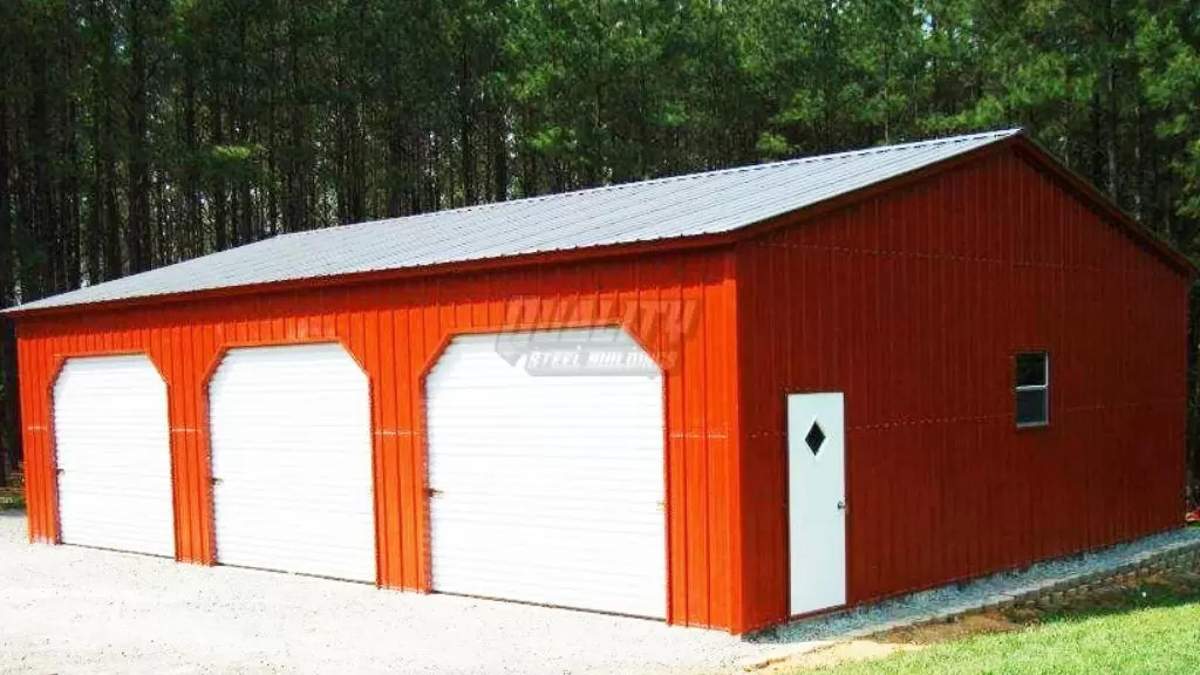

Introduction: Metal Garages – Customizable, Strong, and Durable
Steel buildings are strong and durable storage structures, more than just shelter, embody strength and longevity. They stand as robust structures designed to endure for decades with minimal maintenance. A unique feature of metal garages is their remarkable customizability, offering solutions catering to various needs. Whether it’s a compact equipment storage space, a two-car garage, or a larger shelter for RVs and equipment, you’ve found the perfect solution right here.
When considering the cost of a metal garage, it’s essential to recognize that you’re not just purchasing a structure; you’re investing in long-term quality and value. These metal garages are engineered to endure the harshest weather conditions and resist deterioration, ensuring your valuable assets remain intact. The peace of mind that comes with knowing your vehicles, equipment, and belongings are protected from the elements is truly invaluable.
Unveiling the General Cost of a Metal Garage
Before we dive into the factors influencing the cost of metal garages, let’s establish a foundational understanding of pricing. On average, the price of a metal garage spans from a few thousand dollars to a more substantial investment, contingent upon various variables. For a clearer picture, let’s break down the approximate costs across different garage size-
A standard 12×20 steel garage cost $6,836.50 to $8,000.
A more spacious 24×30 metal garage cost $11,885 to $15,000.
A generously sized 30×50 vertical roof garage cost $24,035 to $30,000.
However, remember that these prices vary according to steel prices, location, customization options, size, roof styles, colors, and market fluctuations.
Factors Influencing the Cost of a Metal Garage
Size and Dimensions –
The size of the metal garage plays a direct role in its cost. Larger structures naturally require more materials and labor, increasing overall expense. Consider your storage needs and potential for future growth when determining the size.
Customization and Features
The extent of customization and additional features directly impact the cost. Elements like doors, windows, insulation, skylights, and aesthetic upgrades enhance functionality and visual appeal but also contribute to the final price.
Roof Style and Material Different
Roof styles, such as regular, boxed-eave, and vertical, carry varying price tags. Additionally, the choice of roofing material, predominantly steel, significantly influences the overall cost.
Location and Site Preparation
The location of your property and the necessary site preparation are important cost considerations.
The foundation type, site leveling, and adherence to local building codes all influence the final expenses.
Color and Aesthetics
Opting for specific colors and finishes adds a touch of personalization, but it also affects the cost. While aesthetics enhance the visual appeal, they’re accompanied by an additional expense.
Steel Prices and Market Fluctuations
The cost of materials, especially steel, is subject to market fluctuations. Keep an eye on steel prices, as they can impact your project’s overall budget.
Permits and Regulations
Obtaining necessary permits and complying with local regulations is essential. Permit costs and any modifications required to meet codes can contribute to the overall expense of your metal garage project.
Accessibility and Entry Points
The design and number of entry points can influence the cost of your metal garage. Including additional doors, windows, or specialized openings for easy access might enhance convenience but can contribute to higher prices. Balancing functionality with budget is key, as these features can greatly impact the overall utility of your metal garage.
Conclusion
Embarking on a metal garage project requires a comprehensive understanding of the cost-determining factors. While initial estimates provide a starting point, customization, size, roofing materials, location, and market trends contribute to the final price. With this knowledge, you can make an informed decision that aligns with your budget and requirements.